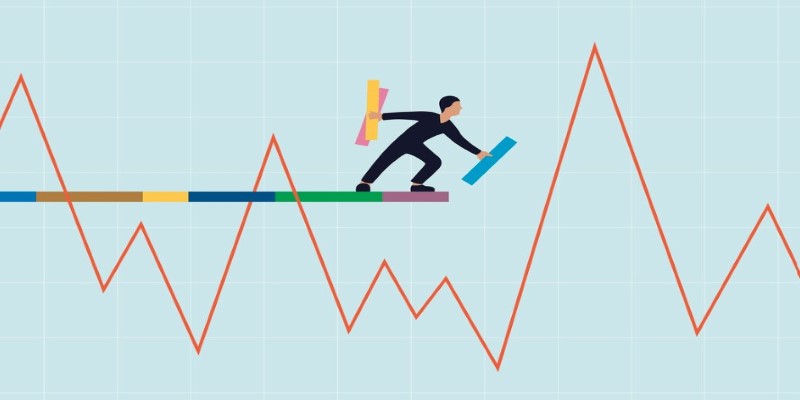If you've decided, it's time to buy a home. Congratulations! This decision marks a significant milestone in your life and finances. However, navigating the home-buying process can be daunting without proper preparation. Whether you're a first-time buyer or looking to upgrade, here's a comprehensive guide to help you prepare effectively.
It's important to evaluate your financial preparedness before entering the market. Examine your credit report and score first. In addition to making you eligible for lower mortgage rates, having a high credit score also gives you more negotiation leverage. To get advantageous terms, try to score higher than 700.

Next, determine your budget in a reasonable manner. Take into account your savings, future mortgage payments, and present spending. To find out how much you can pay based on your income and debt-to-income ratio, use online mortgage calculators.
The largest obstacle to purchasing a home is gathering money for a down payment. Lenders often demand a down payment equal to three percent to twenty percent of the cost of the house. To avoid private mortgage insurance (PMI) and lower your monthly payments, try to save at least 20%.
Consider creating an entirely separate savings account for the purpose of purchasing your home. To gradually boost your savings, set up automatic salary transfers. Cut back on unnecessary expenses and apply the savings to your down payment.
It's time to apply for a mortgage and get pre-approved after you have a plan in place for your down payment. A lender will assess your credit history and determine the maximum loan amount that you are eligible for during this process. Pre-approval fortifies your offer and lets sellers know you're a serious buyer.
To select the best choice, compare the conditions and rates offered by several lenders for mortgages. You can select between fixed-rate and adjustable-rate mortgages based on your risk tolerance and financial objectives. When determining affordability, take into account other expenses like property taxes and closing costs.
Since it takes skill to negotiate the real estate market, you can do it with the help of an experienced real estate agent. Seek out agents who have a track record of effectively closing sales and who are knowledgeable about the local market. Consult your family, close friends, or reputable experts for advice.
Interview prospective agents to evaluate their negotiating abilities, communication style, and level of dedication to your objectives. As your representative, a trustworthy agent helps you through the negotiations, closing process, and property tours. During your house hunt, their knowledge might help you avoid wasting time, money, or stress.
Location plays a crucial role in your long-term satisfaction with your home. Research neighborhoods that align with your lifestyle preferences, commute needs, and future plans. Consider factors such as school districts, safety, amenities, and property appreciation trends.
To see properties up close, arrange private viewings and open houses. Consider the layout, condition, and possibility for future upgrades or additions of each home. To efficiently organize your search, make a list of things that are essential vs nice-to-have.
After you've located the house of your dreams, collaborate with your real estate agent to create a compelling offer. When choosing your offer price and negotiating approach, take the seller's intentions, the state of the market, and previous comparable sales (comps) into account.
To safeguard your investment, work up contingencies for things like home inspections, repairs, and appraisal results. Before signing, thoroughly go over every detail of the contract with legal counsel or a reliable advisor. Get all required paperwork together, finish up any last-minute inspections, and get homeowner's insurance before closing.
Understanding different mortgage types and their implications is crucial. Fixed-rate mortgages offer stable monthly payments over the loan term, while adjustable-rate mortgages (ARMs) may initially have lower rates but can fluctuate over time. Choose a mortgage that aligns with your financial goals and risk tolerance.
In addition to putting money down for a down payment, concentrate on paying off current debt to raise your debt-to-income ratio. Prior to applying for a mortgage, pay off high-interest loans and refrain from submitting new credit applications. If required, take action to raise your credit score by keeping an eye out for mistakes in your credit report.

Many states and local governments offer incentives and programs to assist first-time homebuyers. These programs may provide down payment assistance, reduced interest rates, or tax credits. Research available programs in your area and determine if you qualify based on income and other eligibility criteria.
Typically, closing costs consist of fees for legal services, title insurance, appraisals, and loan origination. These costs might range from 2% to 5% of the total cost of the home. Try to negotiate a split price with the vendor and factor these expenses into your budget. To find out what closing costs you can anticipate, go over the Loan Estimate (LE) your lender issued you before finishing your mortgage.
Owning a home involves ongoing costs beyond mortgage payments. Budget for property taxes, homeowner association (HOA) fees, utilities, and maintenance expenses like repairs and renovations. Create a contingency fund to cover unexpected emergencies such as roof leaks or appliance breakdowns.
Perform a rent vs. buy analysis to determine if homeownership is financially advantageous based on your circumstances. Consider factors like rent prices in your area, potential property appreciation, tax benefits of homeownership, and long-term financial goals. Compare monthly housing costs to assess affordability and long-term financial impact.
It takes meticulous planning and well-informed decision-making to get ready to purchase a home. You may purchase a home with confidence if you carefully consider your options, save money, and work with the proper experts.
Recall that purchasing a home is a major life milestone as well as a monetary transaction. You can soon open the door to your ideal house and a better future if you make the appropriate preparations.

By Mason Garvey/Oct 13, 2024

By Jennifer Redmond/Sep 04, 2024

By Nancy Miller/Sep 04, 2024

By Verna Wesley/Sep 03, 2024

By Darnell Malan/Aug 29, 2024

By Vicky Louisa/Sep 04, 2024

By Susan Kelly/Aug 29, 2024

By Isabella Moss/Aug 28, 2024

By Elena Davis/Sep 04, 2024

By Noa Ensign/Sep 04, 2024

By Maurice Oliver/Aug 30, 2024

By Darnell Malan/Aug 30, 2024